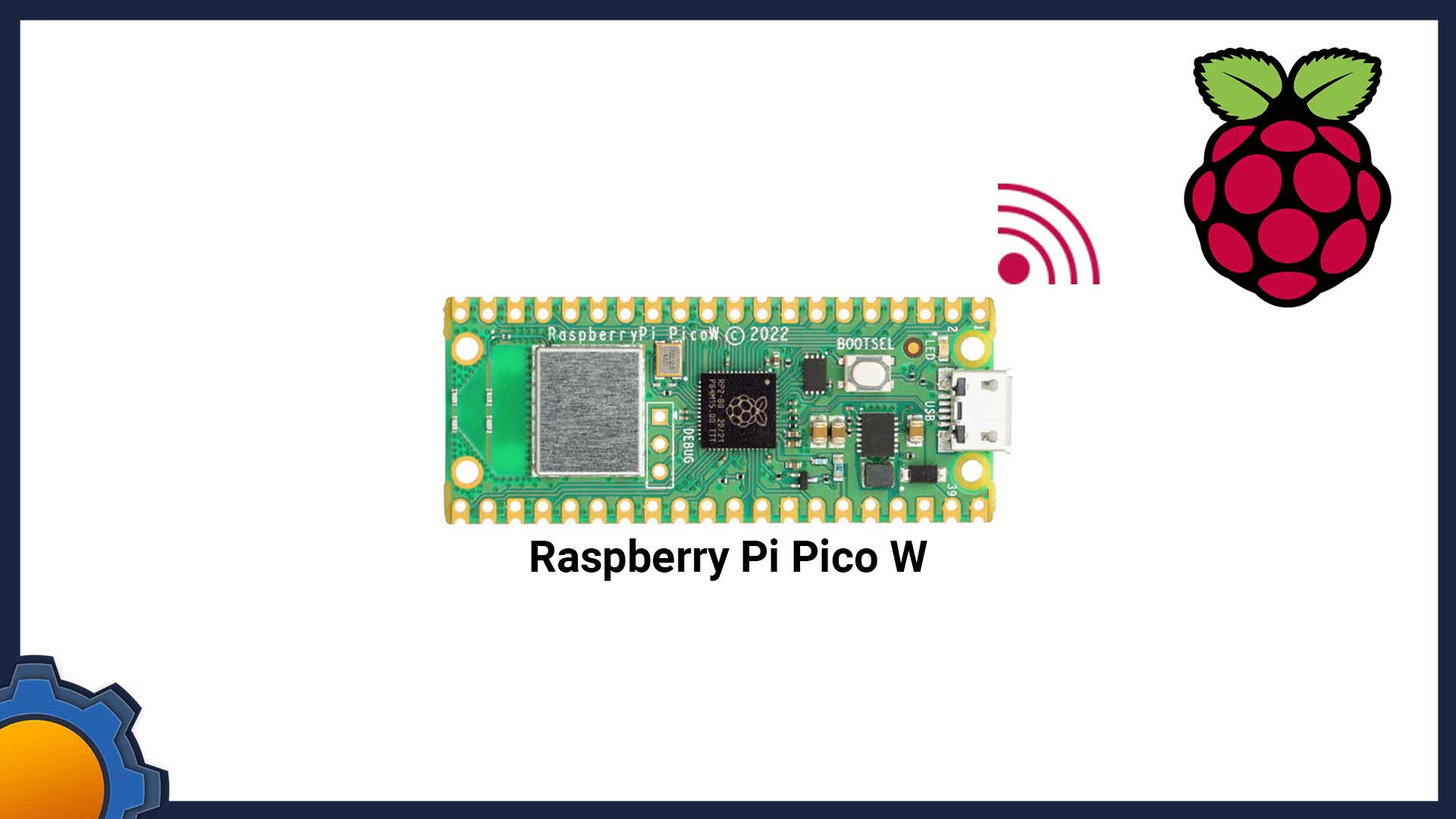I woke up to rather lovely news about the Raspberry Pi Pico board. The last Pico microcontroller was released by Raspberry Pi a couple of months ago and just got treated to a wireless upgrade! That’s right, Raspberry Pi Pico W brings WiFi to a familiar RP2040 platform.
Meet Raspberry Pi Pico W

The new board retains the same form factor and it’s trading the Raspberry Pi logo space for a WiFi and Bluetooth-enabled CYW43439 wireless chip. It brings the 802.11 b/g/n wireless (2.4GHz) LAN and Bluetooth 5.2. It’s still RP2040 based – the same chip used in the original Raspberry Pi Pico, featuring two ARM Cortex-M0+ cores clocked at 133MHz; 256KB RAM and offering 30 GPIO pins.
This will make a lot of makers happy, especially those who argued that ESP32/8266 platforms were offering much more features at a similar price point. Raspberry Pi Pico W costs $6 and right now is limited to one board per customer.
As the Raspberry Pi has an excellent track record when it comes to supporting for its hardware, a WiFi-enabled microcontroller like this finally gives a great reason to leave ESP8266 projects behind and take advantage of all Pico features including excellent I/O choice and PIO.
Pi Pico W specification
- RP2040 microcontroller chip designed by Raspberry Pi in the United Kingdom
- Dual-core ARM Cortex M0+ processor, flexible clock running up to 133 MHz
- 264kB of SRAM, and 2MB of onboard Flash memory
- Infineon CYW43439 wireless chip
- IEEE 802.11n wireless LAN
- Bluetooth 5.2 (not software supported at launch)
- WPA3
- SoftAP (up to 4 clients)
- Onboard antenna licenced from ABRACON (connected via SPI to the RP2040)
- The castellated module allows soldering directly to carrier boards
- USB 1.1 Host and Device support
- Low-power sleep and dormant modes
- Drag & drop programming using mass storage over USB
- 26 multi-function GPIO pins
- 2×SPI, 2×I2C, 2×UART, 3×12-bit ADC, 16×controllable PWM channels
- Real-time clock (RTC)
- Temperature sensor
- Accelerated floating-point libraries on-chip
- 8×Programmable IO (PIO) state machines for custom peripheral support
- Dimensions (WxLxH)
- Pico W: 21mm x 51.3mm x 3.9mm
Not everything at once
While Raspberry Pi Pico W brings WiFi and Bluetooth 5.2, not everything will be supported at launch. Micropython takes precedence over C++ and anyone who wants to tinker with the latest WiFi on a Raspberry Pi Pico W will have to wait until supported libraries for C++ are released.
At the time of writing, there are no estimated timelines for further software and library support but I have confidence we will see these coming to the new Pico board soon.
RP2040 & its future


My Raspberry Pi Pico W is already on its way and should arrive tomorrow or the day after. I will definitely have a short overview or a live stream, soo keep your eyes peeled on my social media.
I’m pleased to see Raspberry Pi supporting the platform well and continuing its development. As Raspberry Pi Pico W is a straight-up drop-in replacement, if you want to bring WiFI capabilities to your project, the upgrade is as simple as replacing the board and adding software functionality.
You can read more about Raspberry Pi Pico W in the official Raspberry Pi blog post. Let me know if you have any questions in this Reddit thread.



















